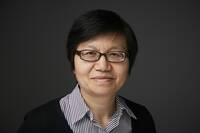
23 Jan Socially Isolated Older Adults Have Accelerated Loss of Teeth
MedicalResearch.com Interview with:

Dr. Bei Wu
Bei Wu, PhD
Dean’s Professor in Global Health
Vice Dean for Research
Rory Meyers College of Nursing
Affiliated Professor, College of Dentistry
Co-Director, NYU Aging Incubator
New York University New York, NY 10010
MedicalResearch.com: What is the background for this study?
Response: Social isolation and loneliness are global public health concerns. Social isolation is the lack of social contacts and having few people to have regular interactions; while loneliness is the distressing feeling of being alone or separated. Approximately 24% of community-dwelling older adults aged 65 and above are considered to be socially isolated in the United States, and 43% adults aged over 60 years old report feeling lonely. Increasing evidence suggests that social isolation and loneliness are risk factors for older adults’ health outcomes, such as depression, comorbidities, cognitive impairment and dementia, and premature mortality. However, one key limitation in the literature is that only a few studies have examined the impact of social isolation and loneliness on oral health.
MedicalResearch.com: What are the main findings?
Response: We found that social isolation was associated with fewer natural teeth and accelerated tooth loss before and after adjusting for sociodemographic variables, smoking, drinking, oral hygiene, health status, and loneliness. However, loneliness was neither associated with the number of teeth nor with the rate of tooth loss. These results are consistent with other studies documenting that the social isolation and loneliness have different effects on indicators of health and well-being through different pathways.
MedicalResearch.com: What should readers take away from your report?
- Older adults who were socially isolated had, on average, 2.1 fewer natural teeth and 1.4 times the rate of losing their teeth than those with stronger social ties.
- It is critical to develop interventions and programs that promote intergenerational support within families and improve older adults’ peer and social connections within local communities.
MedicalResearch.com: What recommendations do you have for future research as a result of this work?
- Our results highlight the need to further examine the mechanisms between social isolation and oral health status.
- More research is needed to further examine the associations between social connections and oral conditions using longitudinal cohort and intervention studies.
MedicalResearch.com: Is there anything else you would like to add? Any disclosures?
- This paper added to the literature that it is important to examine the impact of social isolation and loneliness on health outcomes separately. These findings could help to identify specific intervention targets for interventions to support healthy aging.
- Nothing to disclose.
Citation:
Xiang Qi, Yaolin Pei, Katherine Wang, Shuyu Han, Bei Wu. Social isolation, loneliness and accelerated tooth loss among Chinese older adults: A longitudinal study. Community Dentistry and Oral Epidemiology, 2022; DOI: 10.1111/cdoe.12727
[wysija_form id=”3″]
[last-modified]
The information on MedicalResearch.com is provided for educational purposes only, and is in no way intended to diagnose, cure, or treat any medical or other condition. Always seek the advice of your physician or other qualified health and ask your doctor any questions you may have regarding a medical condition. In addition to all other limitations and disclaimers in this agreement, service provider and its third party providers disclaim any liability or loss in connection with the content provided on this website.
Last Updated on January 23, 2022 by Marie Benz MD FAAD
